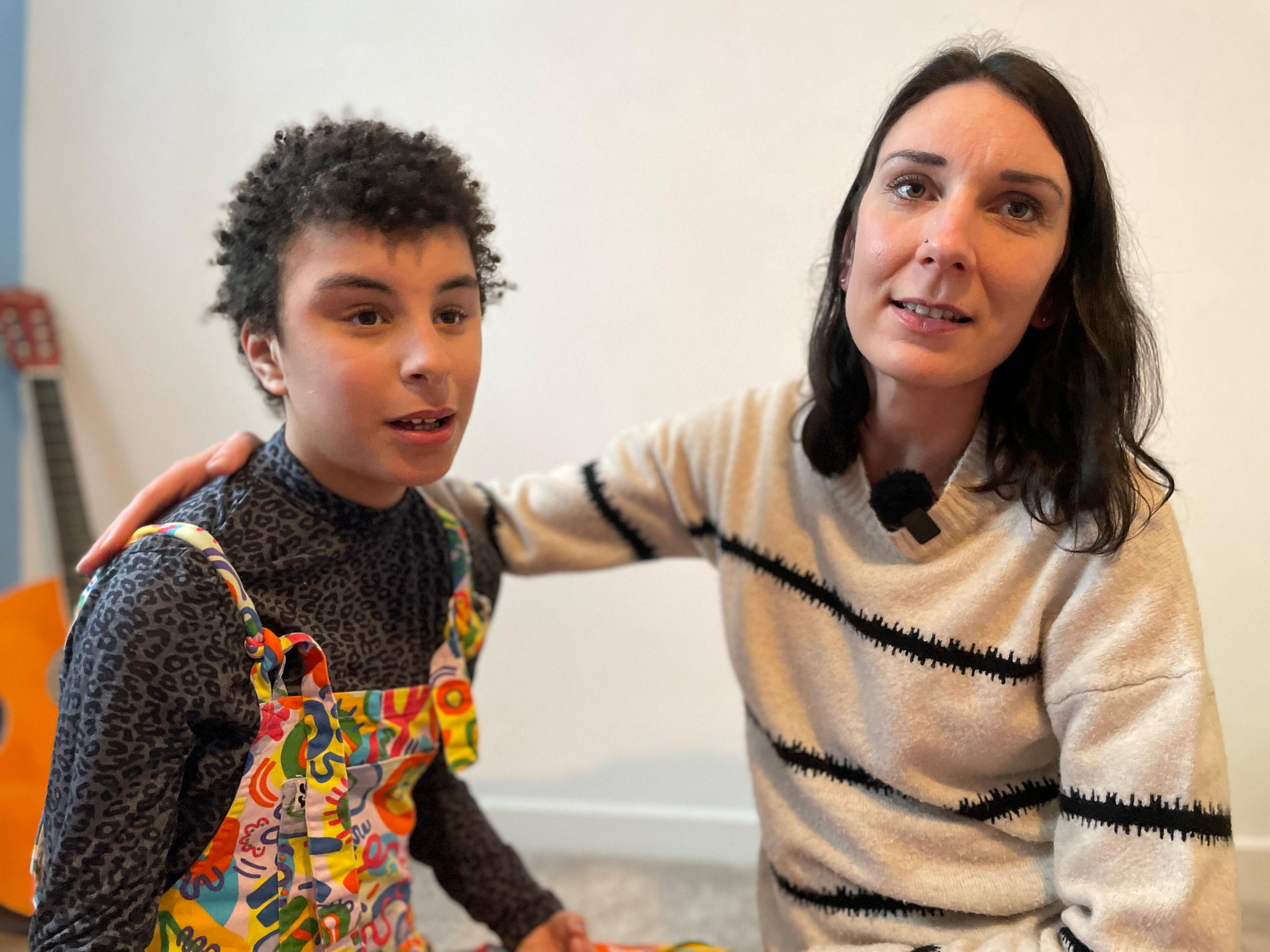Call for parents to be present at SEN care panels

Julia Gerrard said parents should be present to answer the panel's questions
- Published
A mother of a child with special educational needs (SEN) is campaigning for parents to be present when authorities make decisions about their children's care.
Julia Gerrard, from Ashford, Kent, says it is "ridiculous" and "infuriating" that her daughter Shola's case is presented by a social worker.
She says parents should be present to answer the panel's questions about their children.
Kent County Council's (KCC) cabinet member for education and skills Rory Love said during assessments, parents and young people have the opportunity to provide their views and information.
The council uses panels made up of multi-agency representatives to make sure decision-making is "transparent, consistent and fair for all", Mr Love said.
Ms Gerrard says she does not know who sits on the panels and is not given "any rationale" behind outcomes.
If care is refused the decision can be taken to mediation, but Ms Gerrard says parents are not given minutes from the meeting.
She said: "How do we know exactly what we are appealing against."
Ms Gerrard, whose daughter has severe and profound complex autism, ADHD, total speech impairment and global developmental delay, says she feels "passionately" that parents or guardians need to be present.
'They don’t even know what my daughter looks like," she added.
Mr Love said KCC works in line with the special educational needs and disabilities (SEND) Code of Practice, together with its underlying legislation.
National guidance from the the Department of Health and Social Care says local authorities must ensure parents and young people are involved in decisions about their individual support.
Stephen Kingdom, campaign manager for The Disabled Children's Partnership, said the emotional, physical and financial challenge for parents is "massive".
He says when parents appeal decisions it is successful "98% of the time".
This shows the "wrong decisions are being made in the first place", Mr Kingdom added.